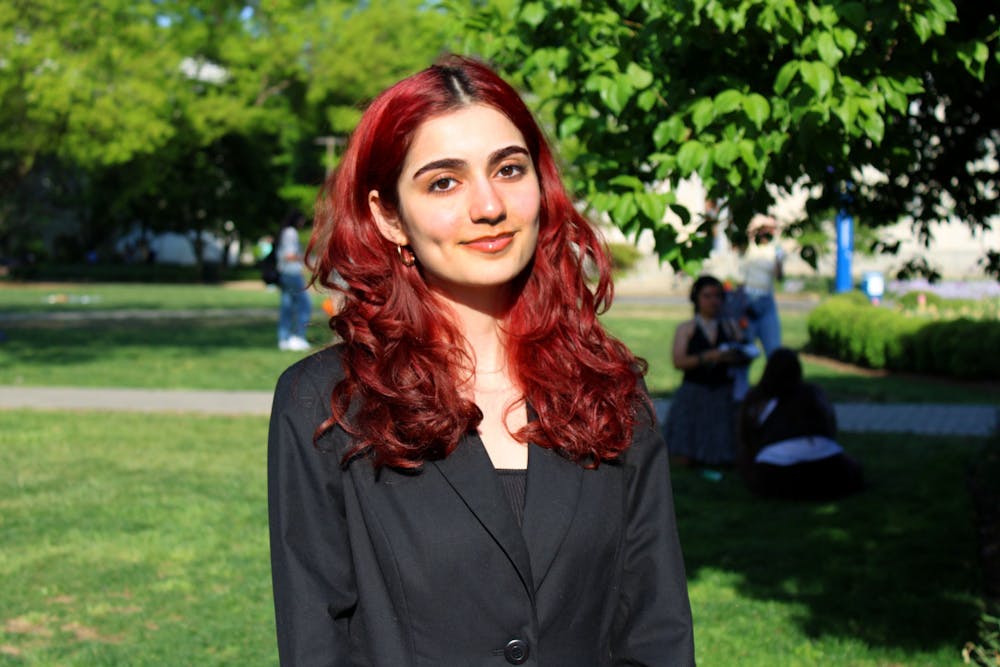Journalist Lewis Raven Wallace once wrote: “Objectivity is dead, and I’m okay with it.” In the classroom, students will often complain about having professors with different views than them. While it’s common to come across professors we disagree with, what happens when their ideological beliefs affect our learning and do not cultivate openness in classrooms?
At American University, I’ve heard from many peers who feel isolated in classrooms if they have a viewpoint different from others. There is an unspoken rule that if you disagree with your professor, you are not welcome in class discussions. While we can advocate for more open classrooms, there is nothing we can do about professor bias, and we can’t expect them to be objective.
Studies have shown that professors in higher education tend to be left-leaning. A 2017 study found that colleges and universities had a 12-to-1 ratio of liberal to conservative professors. In New England, this ratio is 28-to-1, showing a potential geographical factor. Increasingly, faculty identifying as liberal instead of conservative outnumber their colleagues and displace their right-leaning professors.
The spectrum goes beyond “liberal” versus “conservative” of course. There are ranging viewpoints from radical leftists to moderates to libertarians in academia as well as everywhere else. There is simply an abundance of ideas, so it is easy to disagree with others.
Some might say that asking professors to be biased in classrooms would make this matter worse and isolate students, but I disagree. We cannot ask professors, who are professionals with specific areas of expertise, to pretend that they don’t have opinions on their studies. Let’s say a professor is a decolonial scholar who studies the abolition of oppressive institutions. She could not teach about the prison system from a neutral standpoint because she has dedicated her life to learning about decolonizing state power structures.
This conversation also shifts greatly when it comes to professors with marginalized identities. Objectivity is a concept rooted in white supremacy and it fails to consider how identity plays into one’s experiences. Objectivity aims to erase cultural perspectives and forces Black and brown students to assimilate to white standards. Professors of color whose expertise extends to their experiences cannot pretend to strip themselves of their identity for a lecture.
Even when a professor tries to be objective, their word choice will often relay their position on a topic. Some professors might have perfected the art of objectivity, but I have come across more professors who have not. Every word that comes out of our mouths daily relays some sort of bias. We cannot run away from being “subjective,” so I don’t expect our professors to do so either.
Outside of classrooms, we are taught to consider how our sources are biased in news or research. The same standard should also apply to our professors, because this would contribute to our learning experience greatly.
Professors’ freedom of expression should not come at the expense of restricting student beliefs, however. After all, if students feel isolated and not supported in a classroom, that goes against the purpose of a professor’s job. Their role is to create a positive learning environment where every viewpoint is welcome. We can cultivate curiosity and openness in classrooms without making others who disagree feel inferior to us. I will add, though, that I don’t believe in ranging viewpoints when the topic involves a marginalized group’s right to exist.
Professor use of language can play a significant role in making students feel comfortable. If they are sharing their opinion on a certain topic, they can specify it’s simply what they think and relate it to their experiences. I’ve always found it helpful when professors give their background on an issue and any emotional connection they have to it. I find it important to know how an issue intersects with a professor’s identities.
The reason why many peers might feel unwelcome in discussions is if they feel like there is a “universal” truth in a classroom. So professors can seek ranging viewpoints and urge students to talk about their experiences around it. It can also be helpful for professors to do one-on-one check-ins with students to hear their experiences and take measures to involve them in discussions. While these are simple to put on paper, implementing these ideas in real life will not be an easy task and will take time. However, changes that might seem minor can help us get closer to creating a welcoming classroom.
Meliha Ural is a junior in the School of Public Affairs and School of Communication and a columnist for the Eagle.
This article was edited by Jelinda Montes, Alexis Bernstein and Abigail Pritchard. Copy editing by Isabelle Kravis and Charlie Mennuti.





